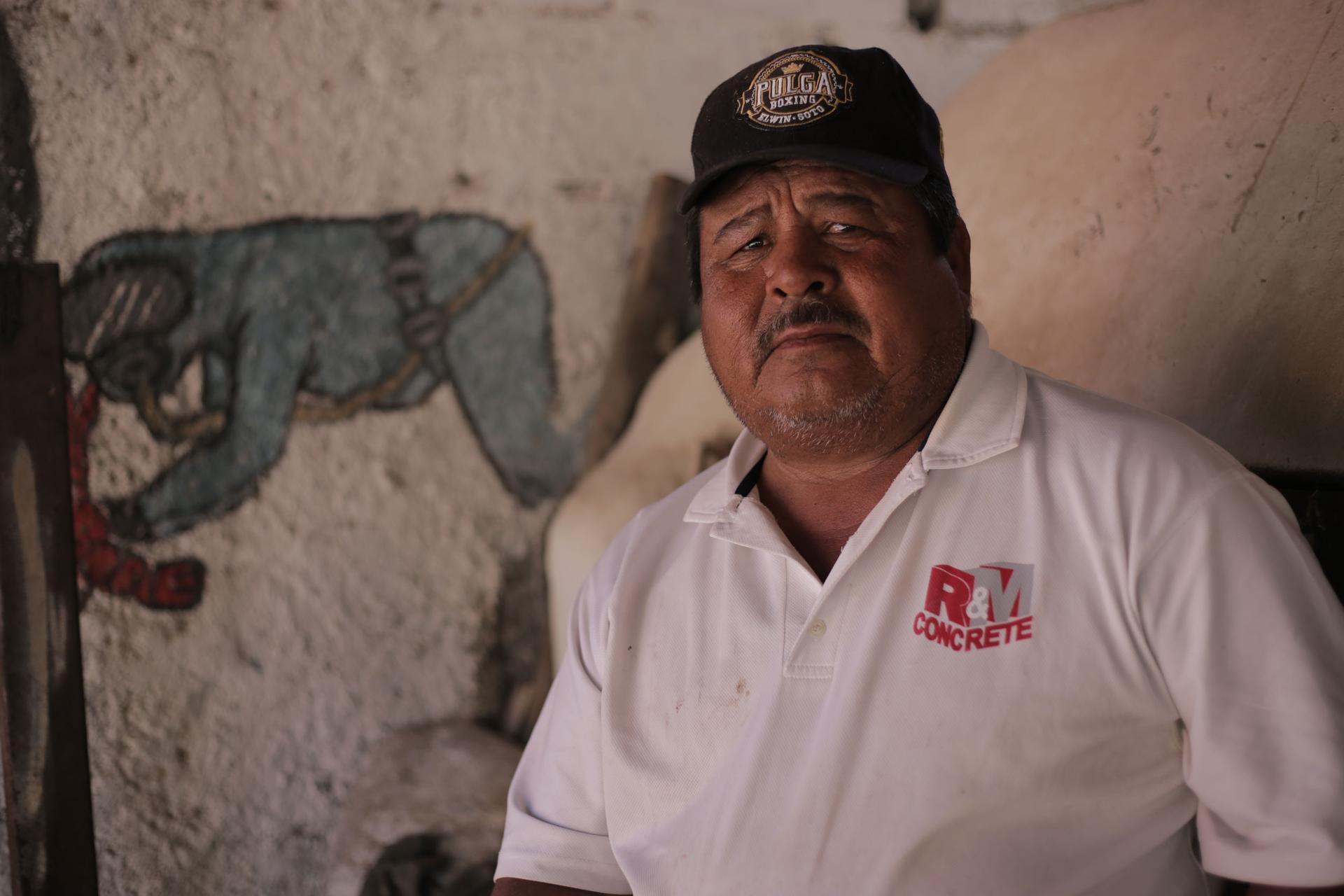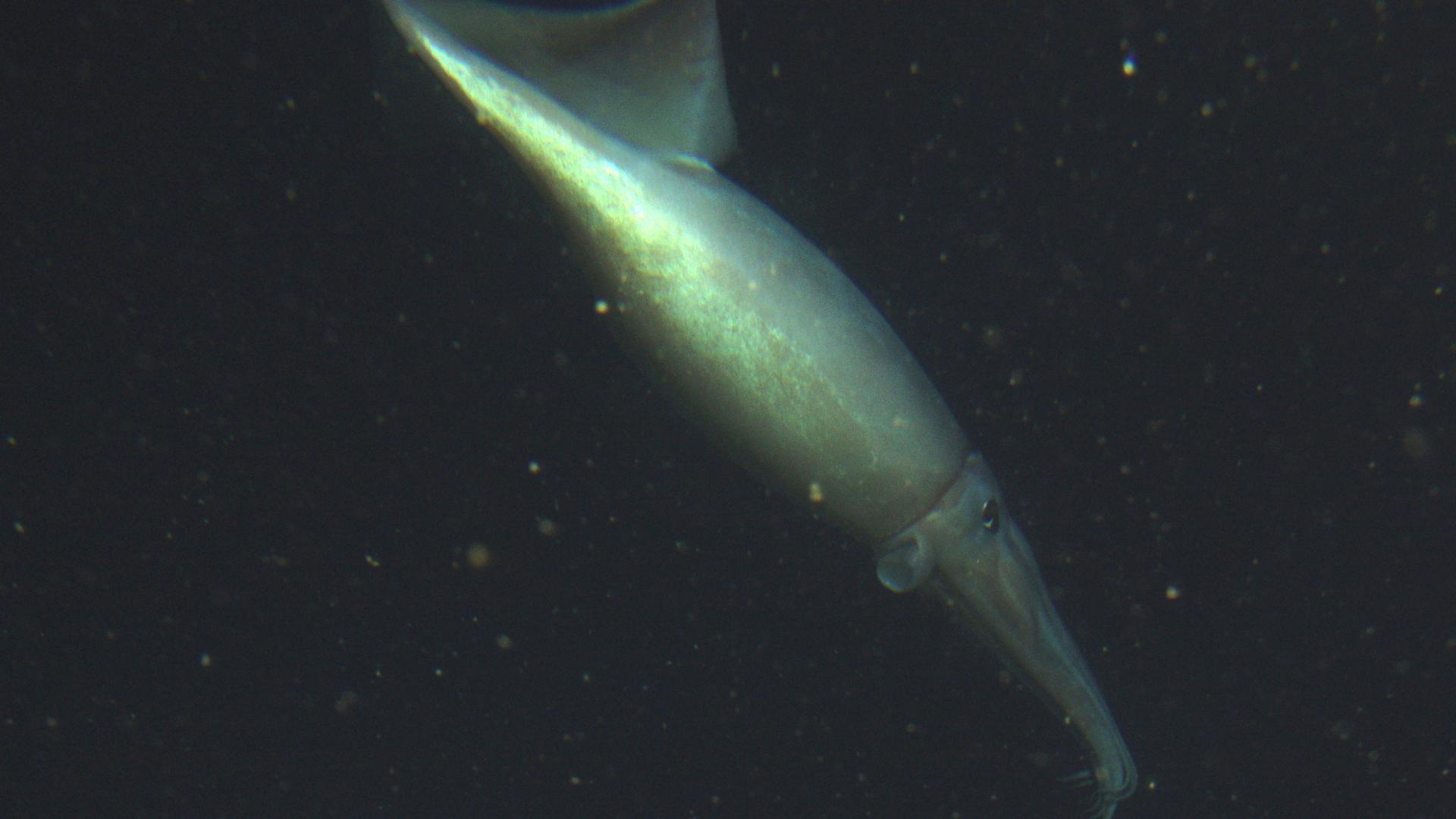On a late afternoon in Kino Bay, Mexico, Gerardo Hernandez is repairing his fishing nets. He strings them out in front of his home, made from old pieces of plywood and corrugated tin.
He lives along the Gulf of California, the body of water that separates most of Mexico from the Baja California peninsula.
Hernandez, a seasoned fisherman now in his 60s, can still remember the time of the giant Humboldt squid — a massive invertebrate that used to grow up to 6-feet long. Their abundance made for a robust squid industry fueled by 2,000 fishing boats — the vast majority being small pangas like Hernandez’s.
“There were always a ton of squid. … You would go out and you’d see them on the surface of the water. The more squid you took, the more there were.”
Related: The debate over deep-sea mining comes to a head
“There were always a ton of squid,” Hernandez said. “You would go out, and you’d see them on the surface of the water. The more squid you took, the more there were.”
The days of the giant jumbo squid are over now.
About 13 years ago, after a hurricane and an abnormally warm El Niño year, the squid disappeared from the Gulf. Eventually, they returned. But by 2015, they were gone again. Scientists attribute the shift to animal adaptation amid a rapidly changing climate.
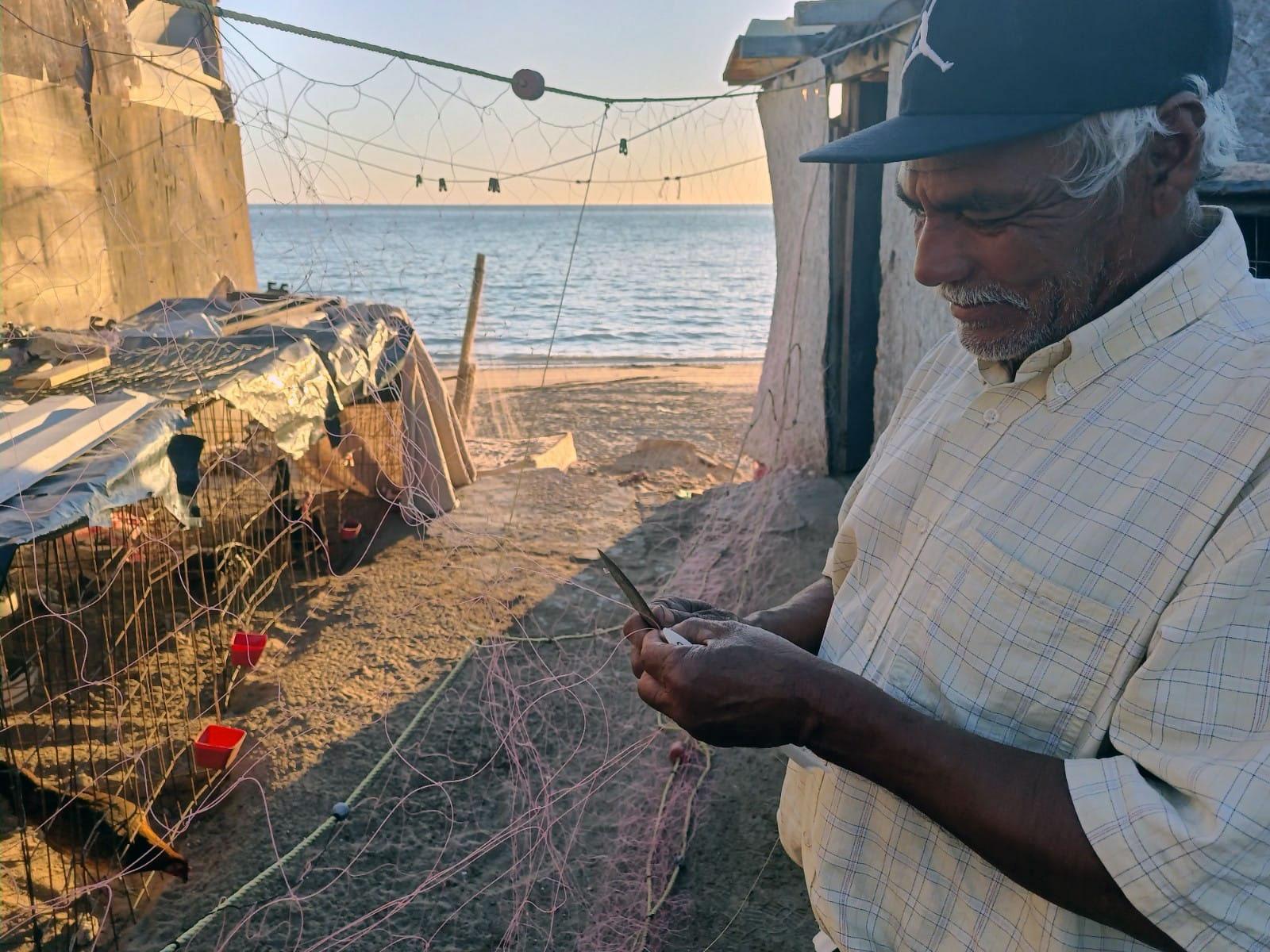
Hernandez’s kids say they want him to retire now. But he still goes out fishing every night with other members of his small fishing cooperative, and they mostly catch Pacific Sierra fish and crab. He said he brings home enough — but not nearly as much as he did in the days of the Humboldt squid.
“They’ve left,” Hernandez said. “They’ve emigrated. Only God knows where they’ve gone.”
Related: ‘Without our territory, we are nothing’: Violence against Indigenous peoples spikes in Brazil
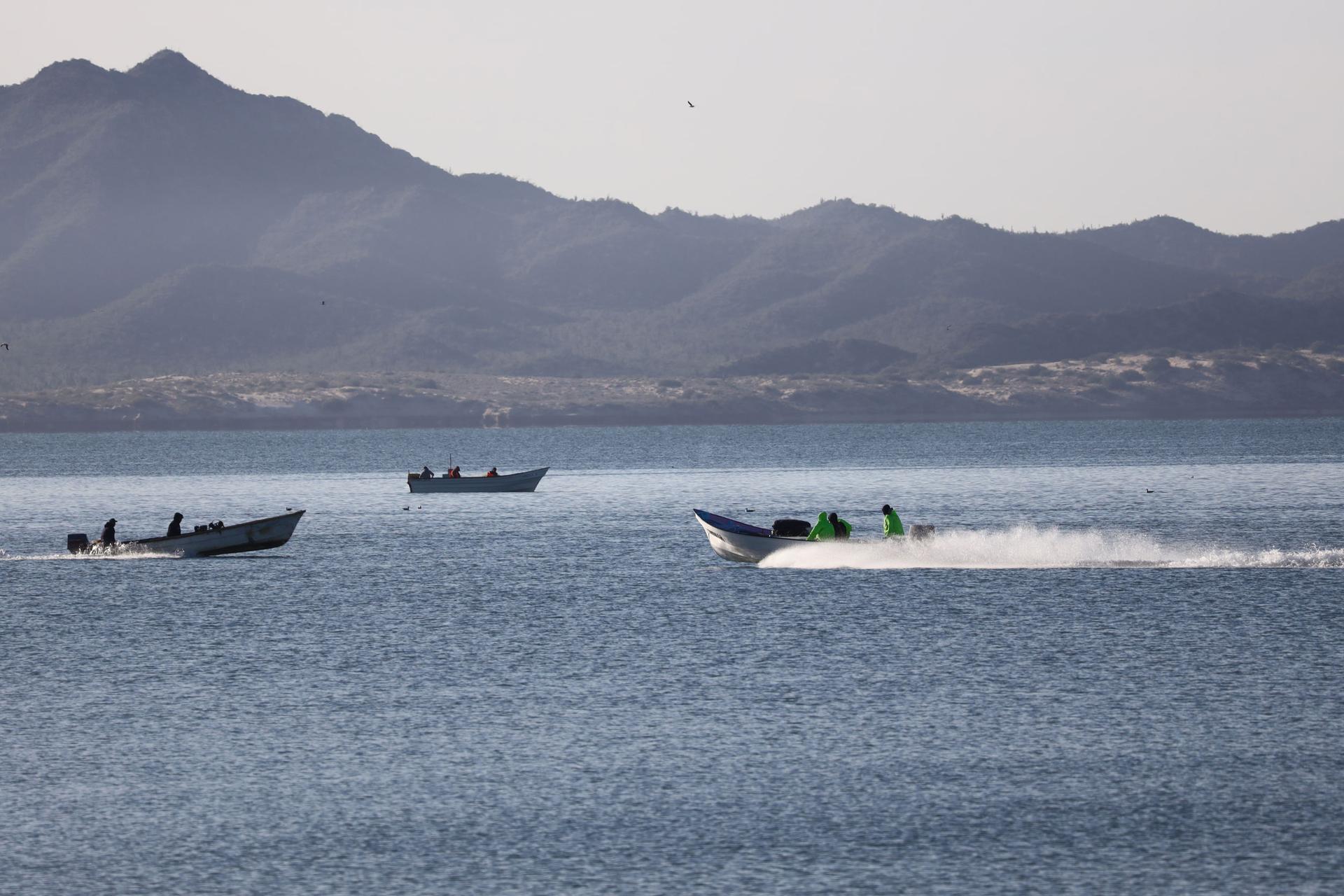
But scientists think they have an idea. They say they haven’t actually disappeared. Instead, the Humboldt Squid that live in the Gulf have shrunk from about 6-feet long to less than a foot, and they’re sticking to deeper depths and cooler waters offshore.
Stanford University biologist William Gilly said the squid seem to have developed this strategy long ago to deal with fluctuating water temperatures that come with El Niño cycles.
“It’s an unusual species that has evolved a suite of characteristics that lets it exploit the highly productive regions of the California current and the Humboldt current in South America.”
“It’s an unusual species that has evolved a suite of characteristics that lets it exploit the highly productive regions of the California current and the Humboldt current in South America,” Gilly said.
This historic adaptation is serving the Humboldt squid well now. It’s a species that seems evolved to adapt to the warming waters brought on by climate change.
At least, that’s the theory.
“There’s a lot we don’t know,” said Rufino Morales, a fisheries biologist and the coordinator of the Producto Calamar subcommittee, a Mexican group that researches and supports squid fishers.
“We assume that the shift is due to climate change, or global warming, or because it coincides with El Niño, but these are scientific theories. We haven’t been able to prove them yet.”
“We assume that the shift is due to climate change, or global warming, or because it coincides with El Niño, but these are scientific theories. We haven’t been able to prove them yet.”
The squid seem to be adapting.
The fishing communities they used to support are trying to as well.
On a warm afternoon in La Manga, a fishing village about an hour west of the port city of Guaymas, a handful of residents gutted a stack of manta rays, whitefish and parrotfish caught that morning.
Jose Antonio Cruz Espinoza, a fisherman in his late 50s, caught squid for years. When they seemingly disappeared, he got into construction work. Today, he builds little palapas, or huts, for restaurants along the beach.
Related: Mexican communities manage their local forests, generating benefits for humans, trees and wildlife
“The majority here in Guaymas were dedicated to the squid and then suddenly they were gone.”
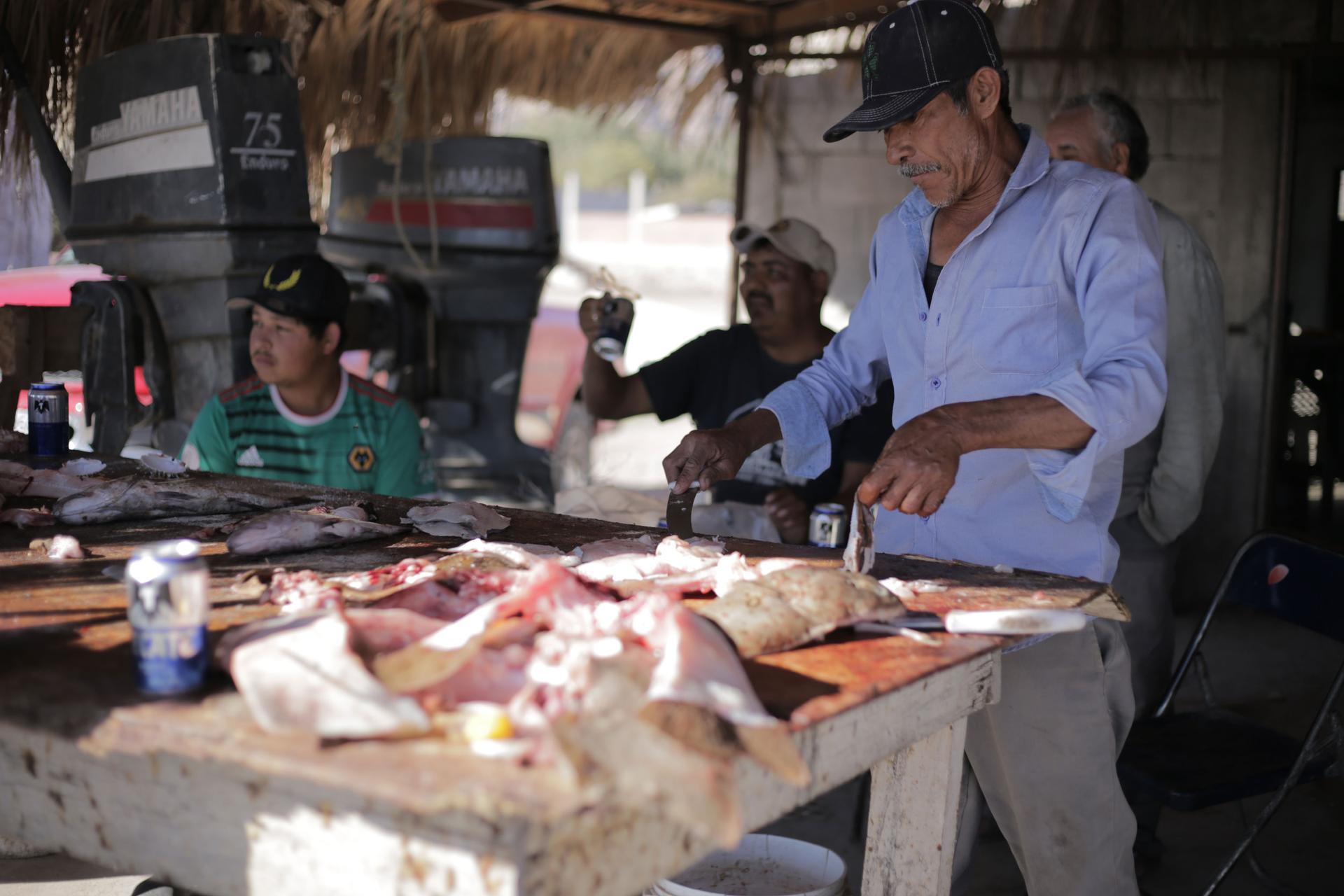
“The majority here in Guaymas were dedicated to the squid, and then, suddenly they were gone,” he said.
Guaymas was one of the centers of Mexico’s squid industry. Thousands of people depended on the squid for their livelihood.
“When the squid was abundant, this was another Guaymas,” said Maria Collins, a member of the Francisco Flores small fishing cooperative in town. “We lived well.”
When the squid left, a lot of people lost their jobs.

Collins pointed out a huge squid-packing factory that went belly up. It’s one of several former plants that still stand empty along the port.
Many fisherfolk now work in factories off the highway on the northern side of town. Others are doing construction, gardening or plumbing.
Some boats began to hunt for jellyfish, which they sell to Asian markets. But the season is short. Locals up and down the coast say none of the catches are doing well. They blame the large sardine ships for overfishing and depleting stocks.
Collins’ own cooperative hasn’t sent any panga boats out since September because of the high gasoline price and lack of fish.
“We are fishermen in danger of extinction. … I think everything that’s happening in the ocean is our fault. Like we aren’t taking care of it. Or we don’t care for it, and there’s the proof.”
“We are fishermen in danger of extinction,” said Hernandez as he repaired his fishing net. “I think everything that’s happening in the ocean is our fault. Like, we aren’t taking care of it. Or, we don’t care for it, and there’s the proof.”
Many hold out hope that this year’s La Niña weather pattern may again bring cooler waters, and the return of the jumbo squid to the Gulf of California.
But with global sea temperatures continuing to rise, it’s hard to say how long they would last even if they do make an appearance.
“The first years after the squid left were really hard. … But several years have passed without the squid…we had to adapt.”
“The first years after the squid left were really hard,” said Javier Cordoba Murillo, a member of a fishing cooperative in La Manga who runs a small family restaurant at the water’s edge.
“But several years have passed without the squid, and we’ve become accustomed to fishing other things. It was hard, but we had to find a way to adjust. We had to adapt.”
